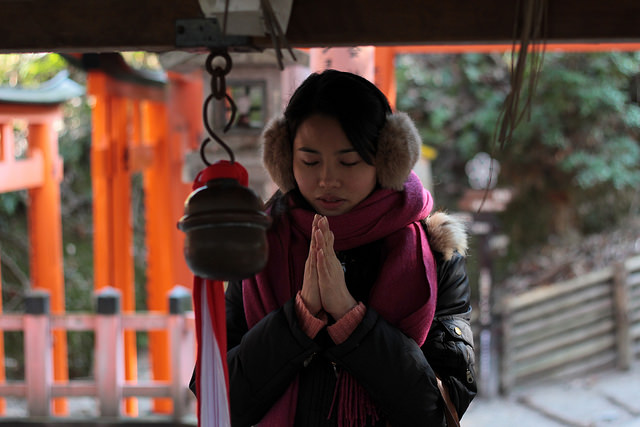
Praying to Shinto “Sports Gods” For Success
- By C Barnett --
- 31 Mar 2018 --

How Shinto Shrines Are a Normal Part of Preparation for the Big Game
People have all sort of rituals for preparing for important sporting events. Some athletes don’t shave, wear their “lucky” socks, or don’t take a shower. Fans can be even more strange with taking whatever action they think boosts their favorite teams chance of success.
Praying to Shinto “Sports Gods” For Success [/tweetthis]
In Japan, pre-game rituals are historically rooted in culture and religion. Shinto, one of the two major religions in Japan, is followed by nearly 20% of the population. Shinto’s foundation is in polytheism. There are over 100,000 Shinto shrines in Japan dedicated to the different deities, spirits, and religious figures.
Several of these shrines are directly dedicated to sports. Have a big race, figure skating event, or Olympic event coming up involving legs? Then go to the Goou Jinja Shinto Temple, dedicated to the gods who protect legs and the lower back. It is also where athletes go who are recovering from an injury to pray for a healthy recovery.
What about soccer? The World Cup is coming up and many players will be leaving balls at the Shiramine Jinguh Shrine, the homeplace of the “ballgame gods.” One can find numerous soccer balls left by teams from Japanese soccer leagues and the national team, hoping to find favor to help them get that penalty kick.
Martial arts, horse racing, dressage, and Sumo are just some of the sports that have dedicated temples to them. But atheletes do not just go for the sporting gods. When the Japanese Rugby Team was getting ready for the Rugby World Cup they visited Shinto Shrines to assist in personal reflection and meditation to center themselves before the tournament.
While there is no direct proof that praying to these gods leads to success, there is psychological evidence that players that engage in rituals are more confident when playing and feel more relaxed dealing with the challenges of playing in front of large audiences or televised games.


















